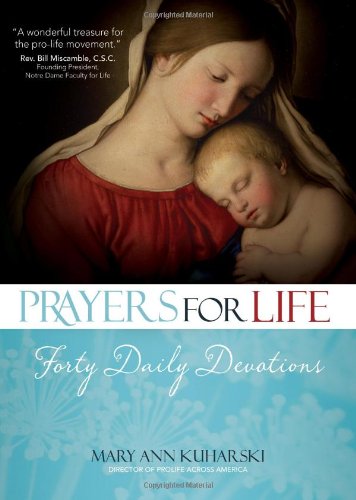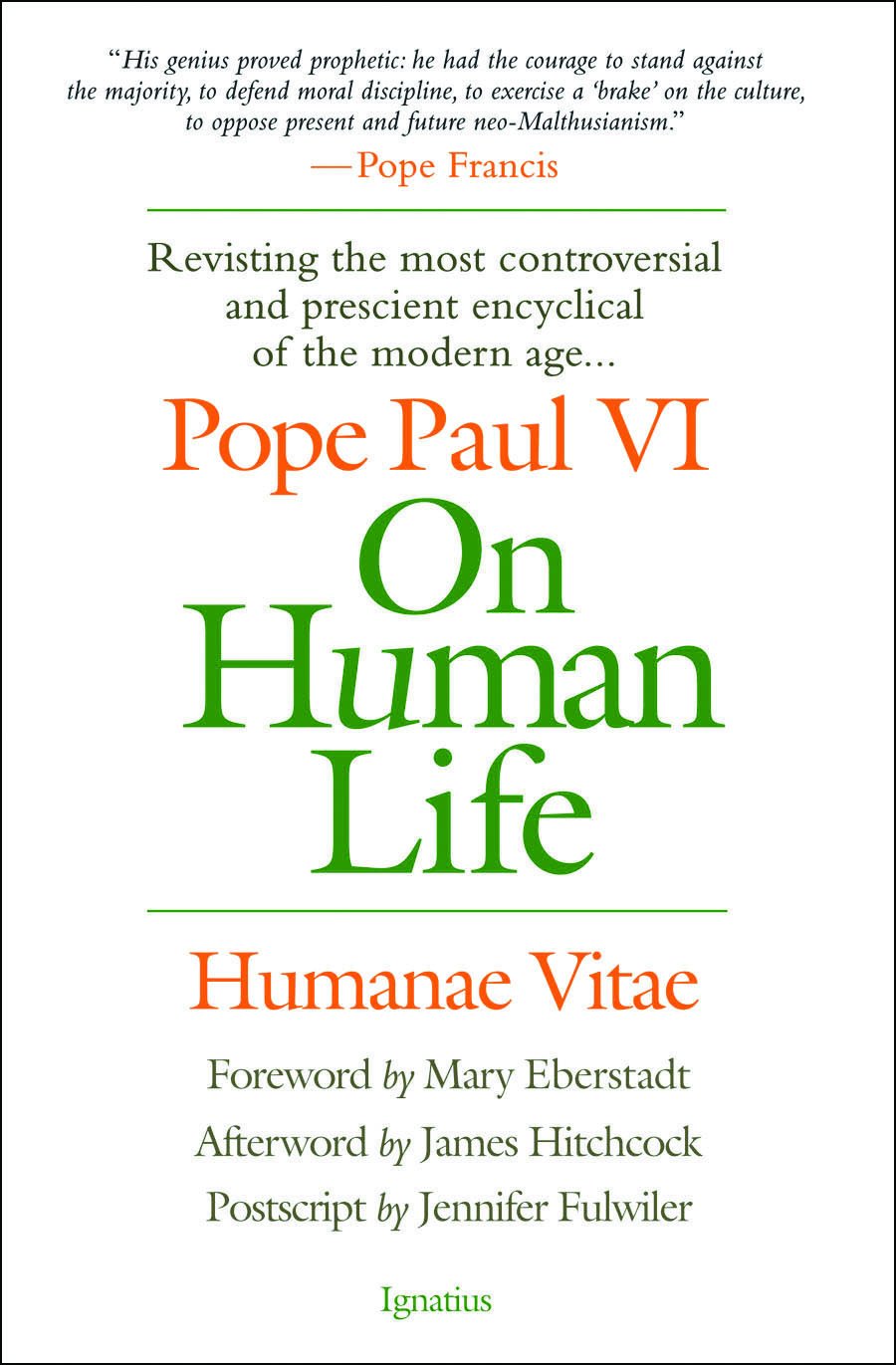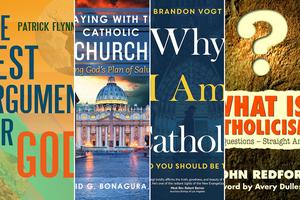Two Books for Life: ‘Prayers for Life’ and ‘On Human Life’
The power of my mother telling me that she was praying for my future spouse — said to me when I was a tween uninterested in marriage — didn’t sink in until I had my own children. The ten years since I became a mother have helped me better understand and appreciate the power of prayer itself too. For me, there has been something about the tangibility of the crucible parenting is that has made me experience just what a difference power can make.
It’s an important time of year for being aware of life issues. January 22 marks the anniversary of the Roe v. Wade decision legalizing abortion and will see hundreds of thousands people marching in peaceful and prayer-filled protest in both Washington, D.C. and San Francisco. Many more thousands of people will join the U.S. Bishops in their 9 Days for Life campaign.
In a few short weeks, we have Lent, which also marks the beginning of the twice-yearly 40 Days for Life campaign, which has been going strong since 2007. It’s a reminder to all of us that we can make a difference in the fight against abortion, and it gives us tools to do that.

Kuharski, who’s a well-established pro-life activist, has put together a devotional that’s applicable and easy to use. It also has, though, an edge of challenge. This is not a book that will let you recline comfortably and just pray. (Though prayer is important, don’t get me wrong.) There’s the invitation — almost a call — to act woven throughout.
There’s gentle education sprinkled throughout — updates about human development in utero, insight from saints and scripture, and prayers that are beautiful.
The days begin with Scripture, continue with a reflection, and end with a prayer.
Day 22, for example, has the title “Defend the Lowly and Fatherless":
Defend the lowly and the fatherless;
render justice to the afflicted and needy.
Rescue the lowly and the poor;
deliver them from the hand of the wicked.
— Psalm 82:3-4Reflection
“If you remain indifferent in time of adversity, your strength will depart from you. Rescue those who are being dragged to death, and from those tottering to execution, withdraw not” (Prv 24:10-11, NAB).
St. Philip Neri reminds us, “Cast yourself into the arms of God and be very sure that if he wants anything of you, he will fit you for the work and give you strength.”
St. Francis de Sales says, “Nothing is so strong as gentleness, nothing so gentle as real strength.”
Write to one of your elected officials, urging him or her to work for laws that will protect the unborn and other most vulnerable members of our human family. Be as specific as you can about a current issue under discussion.
At fourteen weeks from conception, the heart pumps several quarts of blood through the baby’s body every day. The unborn baby’s eyebrows have formed, and eye movement can be detected.
Let Us Pray
Father in heaven, show us the way. Send your Holy Spirit to guide us. Help us not to become overwhelmed or paralyzed but to see that even the most insignificant of acts, if offered to you, can be a prayer for those in need. Help us, Lord, and give us your wisdom that we may speak and work with confidence and boldness, but always with a gentle kindness. Amen.
A historical perspective

The meat of this book is, of course, the encyclical itself. It’s often decried and criticized, but I’ll never forget my own surprise at how approachable it was to read when I first picked it up not long after becoming Catholic. The commentary by Eberstadt, Hitchcock, and Fulwiler complements and draws out the wisdom in it.
The historical perspective that goes along with the encyclical is worth consideration, especially as we enter a world that might, as Fulwiler contends in her section, be ready for the prophetic message Humanae Vitae presents. I’ve never been a history buff, but I can’t help but be fascinated by how, yes, prophetic Paul VI’s words are. I’ve never known anything but a contraceptive mentality. And yet…and yet it seems that it’s not just the failure of contraception that leads to abortion. It’s also wider than that.
Contraception is a contradiction in a world where we’re worried about the way our foods are grown and the chemicals in our water. We’re cutting out gluten but taking drugs for something that’s not broken? We’re homesteading our crops and free-ranging our fowl, but implanting devices into our bodies for what might be the most natural of human processes?
It doesn’t make sense. And that’s worth revisiting and understanding more deeply as much as the end of abortion is worth embracing with our prayer.

















